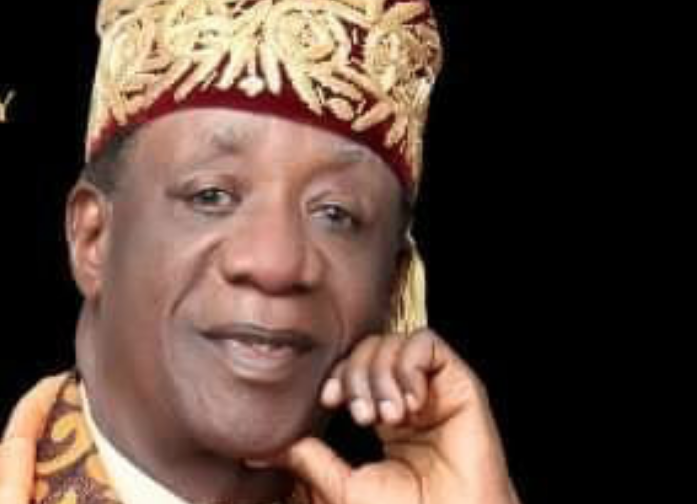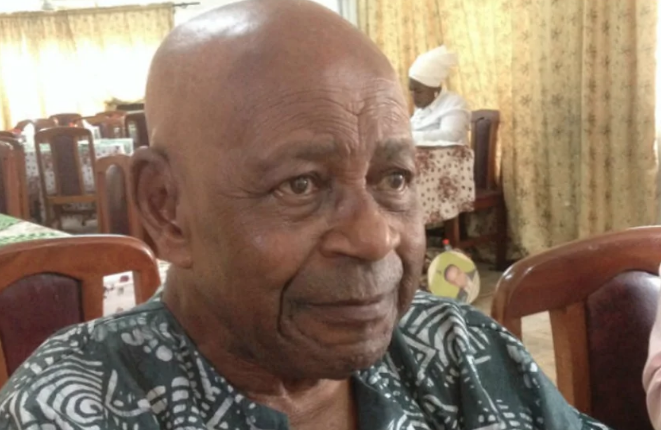In the last quarter of 2006, President Obasanjo’s attempt to change the constitution in order to prolong his tenure beyond the allowed two terms had ended in predictable futility. Party primaries were delayed while politicians calibrated the political wind-vane of third term in full motion ahead of Nigeria’s 2007 general elections.
In Rivers State, the richest of Nigeria’s oil-producing states in the Niger-Delta, Gabriel Tamunobiebere George (GTG) Toby, was in his second term as deputy-governor and had been persuaded to throw his hat into the ring for the nomination by the Peoples’ Democratic Party, for the party’s governorship ticket in 2007. The customary screening of the aspirants took place before a party committee in Abuja on 5 December 2006. When it came to GTG’s turn before the committee, the questioning was minimal. The committee asked for proof that he had been paying his party dues, he provided that. What about his certificate of indigeneship? He had that too. A few more pleasantries followed by perfunctoriness, he was asked to go.
The following day, 6 December, the committee issued its decision. GTG had been disqualified from running. Under the rules of the party, where the Screening Committee decides to disqualify an aspirant, it is obliged to disclose its reasons for doing to. In GTG’s case, the reason given for his disqualification was “question not satisfactorily answered”. The nature of the question or how the aspirant had failed to answer it was never disclosed. Aspirants who were dis-satisfied with the process were entitled to appeal before a committee headed by Osaigbovo Ogbemudia, a retired general and former governor of the neighbouring Edo State. So, GTG took his case before the committee, which chose to meet in Abuja on the day before the governorship primaries which were to take place in Port Harcourt, Rivers State. The appeals committee received the candidates and heard from them. On 9 March 2017, General Ogbemudia died before his committee had announced the outcomes of the appeals that they heard over 10 years earlier. Nearly 13 years after, the committee has still not announced its decisions. It’s unclear whether they ever concluded sitting.
This revelation about how the state lost benefit of the acumen of the man described as “the best governor Rivers State never had” is made in In the Cause of Service: Memoir of Gabriel Tamunobiebere Toby, just published by University Press Limited. The story begins in Opobo in the eastern Ijaw creeks of the Niger Delta in 1870, when the man who would later come to be known as King Jaja of Opobo established a kingdom on the back of control of what was then a lucrative trade in palm oil. The Kingdom was begun by 18 founding chieftaincy stools, one of whom was Chief Toby. King Jaja’s kingdom included much of today’s Ogoni, Andoni in Rivers State as well as Ikot-Abasi and Ikpat-Enin in Akwa Ibom State. Upon the creation of States in 1967, Opobo was initially part of South-Eastern State, with its capital in Calabar. It only became part of Rivers State in 1976. In The Cause of Service also tells how this was achieved.
Advertisement
Following the carve up of Africa in Berlin in 1885, the British moved to consolidate control over the oil palm trade in the Niger Delta. In 1887, they arrested and exiled King Jaja, who died in 1891 reportedly poisoned on his way back from exile. Under a treaty reached with British Consul, Claude McDonald, in 1892, Opobo Kingdom accepted protectorate status. In return, the Opobo War Canoe Chiefs agreed to be disarmed subject to payment of compensation by the British.
In 1944, on the foothills of the end of the 2nd World War, the Regent of the Opobo Kingdom, Chief Harry Toby, accompanied by six other Seniapu(Elders) of the kingdom, finally executed the Compensation Agreement that the British had promised their ancestors. One of the signatories was Senibo George Toby, a wealthy produce merchant and polygamist. He was also the father of GTG Toby, who was born in January 1939, 5 years before the execution of the Compensation Agreement. GTG’s mother, Mary, the second wife of Senibo George Toby, died in child birth when her son was nine in 1948. Seven years later, in 1955, her husband died suddenly too. Their first child, GTG, became family head. He was only 16 and a high school student at the Okrika Grammar School in present day Rivers State.
In the Cause of Service is the story of how this family tragedy inducted GTG into a life of service and leadership at various levels of education, the family, community, faith and country. It is also a story of the evolution of contemporary Nigeria. With the help of a scholarship from the government of Nigeria’s old Eastern Region, GTG would become one of the pioneer students of the University of Nigeria (UNN), graduating with a degree in Economics in 1963. Thereafter, he would go into public life, serving as leader and manager in many public enterprises, including the now defunct commodity and marketing boards. In 1978, the son of a produce merchant “returned to his father’s business” to turnaround the Rivers State-owned, Risonpalm, the biggest state-owned oil palm business in Nigeria. Appointed thereafter as Permanent Secretary in the Rivers State public service, his tour of duty gave him a mastery of the bureaucracy and intricacies of the state. After retirement in 1996, GTG was called to serve as Resident Electoral Commissioner of the then National Electoral Commission of Nigeria (NECON) in Taraba State, which was disbanded with the death of General Sani Abacha in June 1998.
Advertisement
In 1999, the governorship ticket of the PDP in Rivers State went to a man who, like GTG, had graduated from the UNN. They had worked together in the university alumni movement. When he asked GTG to be his running mate, it was difficult to refuse. So, at 60, he was reluctantly inducted into active politics. At a time in which Nigerian politics is dominated by reports of unease at the highest levels between a president and his vice as well as between governors and their deputies, In the Cause of Service offers invaluable lessons in how to stabilize the inconvenient marriage between insecure chief executives and their dispensable deputies.
With over six decades in active leadership, GTG is well placed to examine the hazards of living In the Cause of Service, especially in Nigeria. These memoirs reveal many. Arbitrariness is close to the top of the list. Having won re-election in October 1983, then Rivers State Governor, Melford Okilo, was not merely content with rewarding his political friends, he decided that to accomplish that he also needed to humiliate those at whose expense he would do it. So, he asked all 36 Permanent Secretaries in the public service to either retire or go home to their localities as high school teachers. In November 1983, he fired those who chose not to retire. The following month, the military, led by one Muhammadu Buhari, a Major-General, sacked him and all his peers too. The military administration recalled GTG and his colleagues.
Self-interest always fights back. After his service as Deputy Governor, GTG was appointed Pro-Chancellor and Chair of the Governing Council of University of Port Harcourt. This was tenured for four years but when the Council got interested in the University-owned micro-finance bank, whose earnings were never disclosed as part of the university’s finances, he found himself suddenly “transferred” after less than one year to a similar position in the University of Benin.
In Nigeria, as in many other parts of Africa, no story of public service is complete without an encounter with voodoo or Juju. Arriving for a meeting of the University Council one of those days, GTG found an unusual decoration of a white shroud hung behind his chair, which was between the Vice-Chancellor and the Registrar. So, “when the decoration was unveiled at my directive, we noticed some black and red beads tied and hung on the wall.” The meeting still took place but rather than run it from the dais, he chose to chair it from the “floor”. Underscoring the importance of faith and values in a life of service, In The Cause of Service declares “fetish concoctions… ineffective.”
Advertisement
For many involved in lives of service, supportive family life is considered important. Choosing a partner for this purpose can sometimes present its own challenges. GTG identified his future spouse, Christiana, early enough before he entered university in 1960 but getting her consent wasn’t easy. He visited her to propose in December 1960 but she was to respond that “since I had been in love with her for three years, it would take her another three years to respond to my proposal.” True to her word, she finally communicated acceptance on the eve of his degree examinations in 1963 and it took another three years before they got married in 1966.
In The Cause of Service makes an invaluable contribution to history, anthropology, sociology, politics and values of contemporary Nigeria. A future reprint should include a glossary to explain the nomenclature of traditional offices and titles of the Ibani culture and of the Opobo Kingdom. Its bigger point is that public service is not for the faint of heart, bereft of worth or cause of profit. Despite a long sojourn in public life, all of GTG’s material acquisitions comprise his family house in Opobo and some property in Port Harcourt. In pursuing this theme, In The Cause of service makes the point that those who seek to stay the course should be prepared to pay a price sometimes, safe in the knowledge that the most rewarding things in life are too important to be bought with money or material acquisitions.
Views expressed by contributors are strictly personal and not of TheCable.







